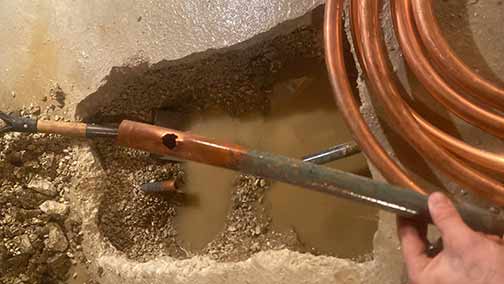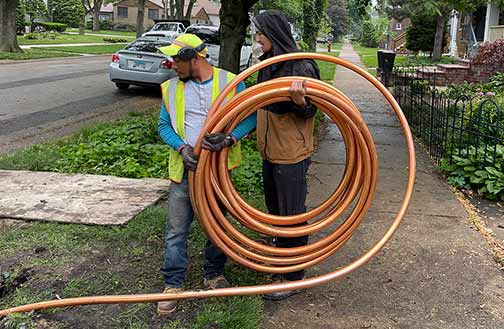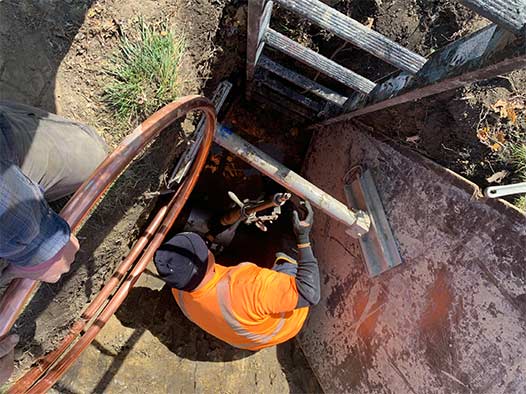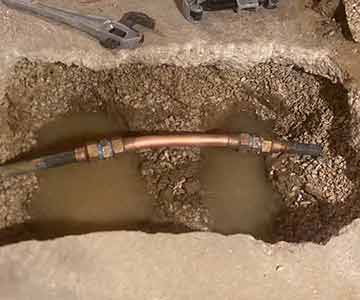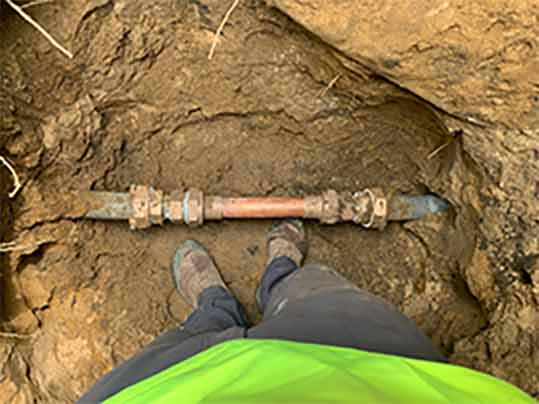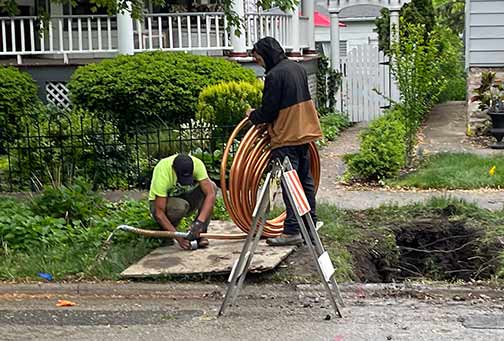
Your main water line is the most essential water pipe in your home, but despite its vital role, it is the water pipe that most homeowners know the least about, says Abrams Management. That is because the main water line is often underground, out of sight, and therefore out of the homeowner’s mind.
But like other plumbing system components, problems happen with the main water line. The line can clog, leak, corrode or be damaged by rodents, tree roots and soil movements. When this happens, the effects on your home can be disastrous.
Main water line issues
Common problems associated with damage to a main water line include:
Low water pressure
Your home may suffer from low water pressure as water pressure is siphoned from the pipe through the leaky section.
High water bills
Water bills will keep increasing even if your water usage pattern is still the same and the water company hasn’t increased its rates.
Contaminated water
A broken main water line will admit soil into the water supply. If there is rust in the line, it may also cause water discoloration.
Foul-smelling water
Impurities can give the water an unpleasant odor, maybe as a result of the presence of bacteria in the water.
Puddles in the lawn
Water from a broken main water line will seep into your lawn, and you may start to see puddles in the yard or soggy patches of soil.
Sinking or swelling ground
Sometimes, a broken water main can cause sections of your yard to bulge or sink. This problem can also cause sinkholes.
Pest invasion of property
The promise of easy access to a reliable water source may start to draw all kinds of vermin to your property.
Structural damage
A broken water line can pose a major threat to your building’s foundation. It can damage the driveway, deck and concrete walkways.

The plumber you call must have experience in water line repair. It is even better if the plumber offers emergency plumbing services.
What to do about a broken main water line
Fixing a damaged water line requires the know-how of a professional plumber. Water line repair and replacement is not a job for homeowners; this is not a DIY project. Water line problems must be handled by experienced and licensed plumbers.
Depending on the severity of the problem, the line may be repaired or replaced. Also, you do not have to repair or replace the main water line; only the damaged section. However, if the pipe is already old, complete replacement may be the best option.
Follow these steps to fix your broken water line.
Turn off the water supply
You may have to turn off your water supply as soon as you discover the problem. To cut off the water supply, close the main water shut-off valve. This step is not needed if the damaged water line does not pose a threat to your property.
Call a professional plumber
The plumber you call must have experience in water line repair. It is even better if the plumber offers emergency plumbing services. An emergency plumber can start repairs immediately, even on holidays and weekends.
Locate the Leak
The leak can happen in the section of the main water line inside your home or the underground portion. Leaks may also happen in the street-side section of the water line. This portion of the water line is the responsibility of the city.
Notify the water company
If the break happens in the part of the main water line that belongs to the water company, it is their job to fix it. But even if this is not the case, you may still need to notify the company of the problem.
Conduct the necessary tests
The plumber will need to inspect and test your water line to detect the exact location of the water leak. It not only helps to pinpoint the problem, but it also narrows the scope of the repair and helps you cut costs.
Inform your neighbors
If your neighbors’ properties are affected by the break in your water main, you should inform them of the problem and the steps you are taking to solve it. That can help to avert further property damage.
Obtain the required permits
In some cases, fixing or replacing a broken water line may require you to get permits. That should not be a problem if the plumber you hired for the job is local and well-informed about the operations of the local authorities.
Start the repairs
To repair or replace a broken water line, the plumber will normally dig a trench to access the line. The steps for fixing the problem depend on the size of the issue, the pipe material, the age of the water line and the chosen solution.
After the water line is fixed, it is wise to take steps to prevent future problems. That can mean creating a program for preventive care of the water line, with yearly water line inspections by a qualified plumber.
